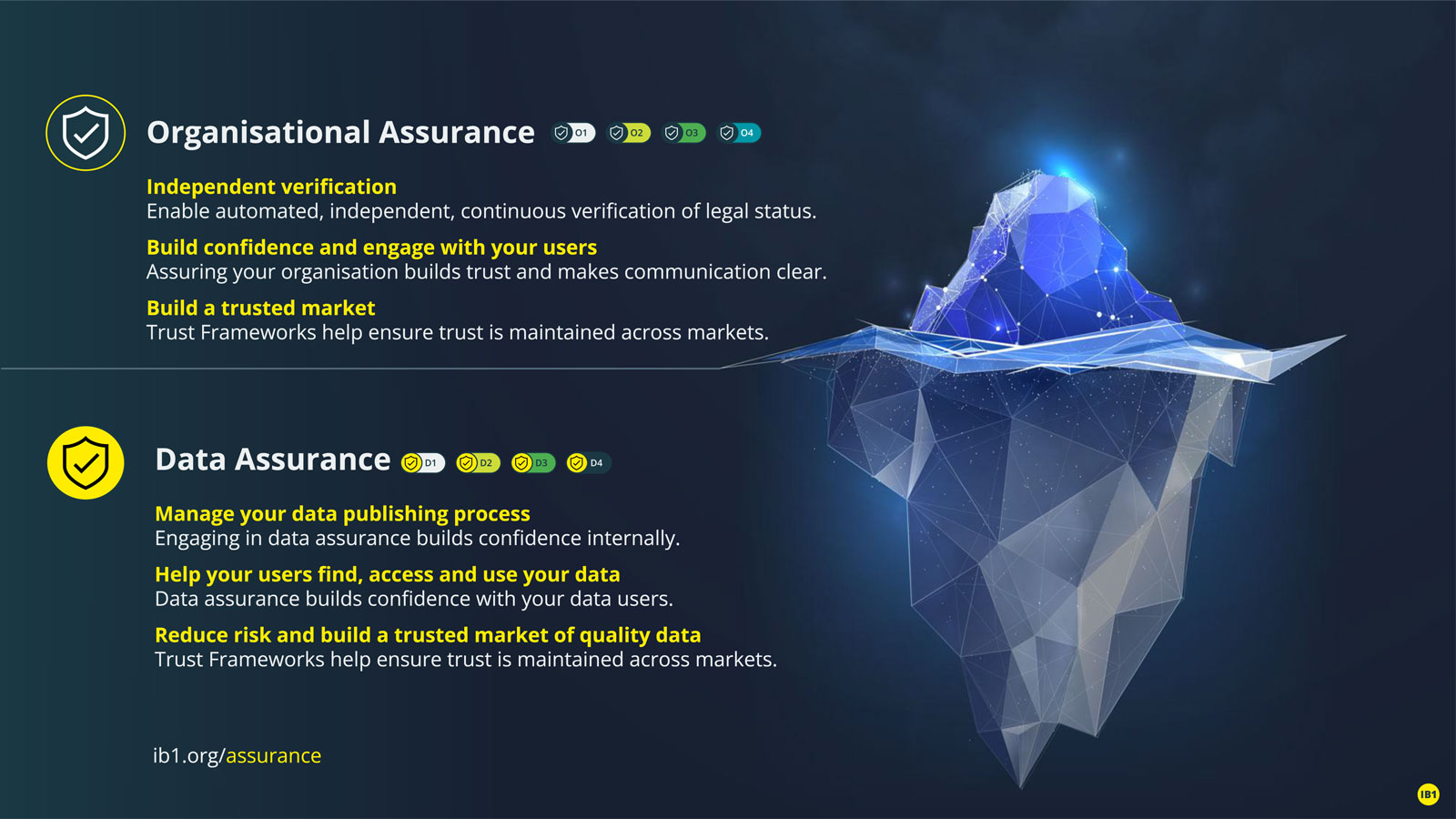
Click here to review and comment on the open discussion document
You also contact us at research@ib1.org with comments or if you can’t access Google Docs
How can we build trust in data: in the organisations supplying it, and those using it?
How can we create a race to the top, building on existing lessons learned and a wealth of prior art?
Today we are initiating a new chapter in Icebreaker One’s development: Assurance. We are seeking feedback and active engagement in its live development. Our work on this includes both organisational assurance and assurance for datasets. Assurance is being designed for both data publishers and data users.
Our chosen approach is not to publish research papers but rather to launch a live service. This also supports our broader Trust Framework development.
Our aim is to help two types of users. For data publishers, we want to give teams inside organisations a clear and confident path to support high-quality and standards-aligned publishing. This work will support the development of internal processes for data publishing. For data users, we want to enable teams to have confidence that they have permission to find, access and use data from other organisations. To do so, we have heard people want to know they can trust the organisation’s processes as well as how they are applied to individual datasets.
Preamble: Why are we doing this?
- Because people have asked for help. Throughout our consultations on data sharing within and across sectors, practitioners in every organisation we’ve spoken to have expressed a need to build trust and confidence in data. This includes building confidence within data publishers about whether and how they should share data externally, and building confidence for data consumers that the data and its source can be relied upon. In response to this, earlier this year we announced that assurance would be the focus of the next phase of development on the Icebreaker One Trust Framework.
- Because data from the real economy is becoming subject to the same scrutiny and processes as exist in the financial economy. It has taken centuries to build processes around financial systems that are the basis of trust in our economy. Creating the basis for trust systems in the real economy is hard for many reasons: there are many more input dimensions (e.g. energy, resources, processes) and many more transformations (e.g. methodologies for carbon assessment). There are also many, many more sources, ranging from earth observation to soil sensors, and smart meters to self-driving vehicles. We are on a path of exponential change where the number of digital systems that need to speak to each other in a trusted manner will dwarf the current web.
- Because industry, governments and society need a way of joining up policy, finance and impact to address systemic challenges. We need systems that both humans and machines can use: we cannot (and should not) budget for a ‘technotopian’ future. While AI may take a lead role in many decisions, humans need to be able to trust the machines to trust other machines. Solutions must meet diverse user needs whether those users are policymakers, investors, data scientists, asset managers or startups; whether they are skilled professionals or interns. We need to design for people, not just things.
Trust in data, and the policies and processes that surround data, need common points of value. To make them usable they need to be simple enough to be effective, and effective enough to be simple: we’ve seen many solutions that either over-complicate or over-simplify and are trying to strike a balance. We don’t yet know what ‘good’ looks like and we need your help to navigate towards that.
Our primary use case is to develop a market architecture that addresses climate change. To achieve our collective goals we must align data strategies with our sustainable development goals. We need better language, and deeper insights, to move these topics forward. We must address both private sector and public sector objectives. As data becomes weaponised, trust will become a foundational element of our data infrastructure.
Click here to review and comment on the open discussion document
You also contact us at partners@ib1.org with comments or if you can’t access Google Docs
Open Collaboration — we need your input
Over the summer we have consulted with members, reviewing substantial prior work from many sources, researching existing systems, and developing solutions to address the need for confidence in a manner that is both sector-agnostic and can scale. Today we are pleased to release the first version of the Assurance approach for open discussion and development.
The assurance approach will help organisations to demonstrate the level of maturity that they have reached in data publication. They set out separate requirements for organisations and individual datasets. These can be used by data consumers to assess the extent to which they can rely on the data being published.
Membership of Icebreaker One will provide the contractual basis for assurance, including mechanisms to create redress and dispute resolution when levels are not met. By joining Icebreaker One, organisations can demonstrate their commitment to high-quality data sharing by aligning to an independent service. Membership also enables organisations to inform and shape the future direction of Trust Framework development through participation in our collaborative Icebreaking process.
